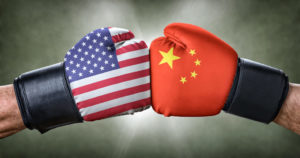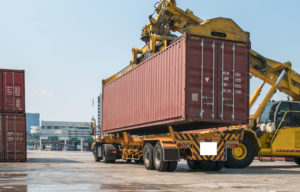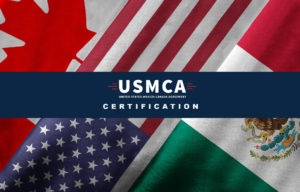News & Insights
BIS Issues Final Rule Suspending License Exceptions Under The Export Administration Regulations For Hong Kong
Today (July 31, 2020), the BIS published its Final Rule revising the Export Administration Regulations (15 C.F.R. Parts 730 – 774) (EAR) and suspending license exceptions that were previously applicable to Hong Kong. License exceptions are authorizations under the EAR that allow exports, reexports or in-country transfers without a license from the BIS provided that certain conditions are satisfied. EAR license exceptions may be found 15 C.F.R. Part 740 of the EAR. The BIS previously announced these amendments to the EAR on June 30, 2020. The license exceptions are being suspended for Hong Kong, as discussed in greater detail below, as a result of the revised U.S. policy toward Hong Kong, which was triggered by the new security measures imposed on Hong Kong by the Chinese Communist Party and President Trump’s subsequent issuance of Executive Order 19396. In its Final Rule, the BIS noted that the PRC’s new security measures undermine Hong Kong’s autonomy and increase the risk that sensitive U.S. technology and items subject to the EAR will be illegally diverted to unauthorized end users or end uses in the PRC or other destinations, such as North Korea or Iran. Further, the BIS noted that the U.S. Government can no longer effectively distinguish between the export of controlled items to Hong Kong and the PRC. Accordingly, effective as of July 31st, license exceptions under the EAR are no longer available for exports and reexports to, as well as in-country transfers in, Hong Kong where they provide differential treatment as compared to those license exceptions available to the PRC. See 85 Federal Register 45998 (July 31, 2020).
By way of background, and as we reported in our blog dated July 30th, President Trump issued Executive Order 13936 on July 14th, formally suspending Hong Kong’s special trade status under U.S. law. Several weeks earlier, on May 27, 2020, the Department of State certified to Congress that Hong Kong is no longer sufficiently autonomous from the PRC by virtue of, among other things, the PRC’s recent imposition of national security measures that violate Hong Kong’s autonomy and the Sino-British Joint Declaration. Executive Order 13936 states that Hong Kong “is no longer sufficiently autonomous to justify differential treatment in relation to the PRC,” and the U.S. will suspend or eliminate the special treatment for Hong Kong with respect to U.S. immigration laws and regulations, the Arms Export Control Act, the Defense Production Act and the Export Control Reform Act. The Executive Order directed U.S. government agencies to amend their regulations and begin implementation by July 29, 2020.
1. Hong Kong’s Special Treatment under U.S. Law
The United States-Hong Kong Policy Act of 1992 (“the Act”) provided special treatment to Hong Kong for purposes of U.S. customs, export, sanctions, immigration, extradition and foreign investments laws and regulations. In essence, Hong Kong was treated as its own country, separate and independent from the PRC. The Act requires the Secretary of State to submit an annual report to Congress as to whether Hong Kong continues to remain sufficiently autonomous from the PRC, and certify whether Hong Kong continues to merit special treatment under U.S. law.
2. Suspension of License Exceptions under the EAR
As noted above, on June 30, 2020, the BIS announced that it would suspend license exceptions for exports and reexports to Hong Kong, as well as in-country transfers within Hong Kong, which are provided in 15 C.F.R. Part 740 of the Export Administration Regulations (EAR) if they provide differential treatment than those exceptions available to the PRC. Per 15 C.F.R. Section 740.2(b) of the EAR, all license exceptions are subject to revision, suspension or revocation by the BIS, in whole or in part, without notice. Effective as of July 31, 2020, the following license exceptions have been suspended and are no longer available for Hong Kong:
| EAR License Exception | Citations (Part 740 of the EAR) |
| Low Value Shipments (LVS) | Section 740.3. |
| Shipments to Group B Countries (GBS) | Section 740.4. |
| Technology and Software under Restriction (TSR) | Section 740.6. |
| Computers – Tier 1 Only (APP) | Section 740.7(c). |
| Temporary Imports, Exports, Reexports and In-Country Transfers (TMP) | Section 740.9(a)(11), (b)(2)(ii)(C) and (b)(5). |
| Servicing and Replacement Parts and Equipment (RPL) | Section 740.10(a)(3)(viii), (a)(4), (b)(1) excepted as permitted to Country Group D:5, and (b)(3)(i)(F) and (ii)(C). |
| Governments (GOV) | Section 740.11(c)(1) (Cooperating Governments only). |
| Gift Parcels and Humanitarian Donations (GFT) | Section 740.12. |
| Technology and Software Unrestricted (TSU) | Section 740.13. |
| Baggage (BAG) | Section 740.14 (except as permitted by Section 740.14(d)). |
| Aircraft, Vessels and Spacecraft (AVS) | Section 740.15(b)(1), (b)(2), (c).
|
| Additional Permissive Reexports (APR) | Section 740.16(a) and (j). |
| Reexports of items from Hong Kong under License Exception APR | Section 740.16(a). |
| Strategic Trade Authorization (STA) | Section 740.20.(c)(2). |
Companies that were previously utilizing these exceptions for Hong Kong should begin preparing and submitting license applications to the BIS for exports, reexports and in-country transfers that involve Hong Kong.
3. 60-Day Savings Clause
Notwithstanding the suspension of the license exceptions identified above, the BIS rolled out a 60-day savings clause. This allows affected shipments that were on dock for loading, on lighter, laden aboard an exporting or transferring carrier, or en route aboard a carrier to a port of export or reexport on June 30, 2020 (pursuant to actual orders for Hong Kong) to continue their destination under the previously license exception authorizations.
The 60-day savings clause also applies to deemed exports as well. “Deemed exports” are transfers or releases of source code or technology to non-U.S. persons in the United States. Under the EAR, depending upon the export classification of source code and technologies, as well as the home countries of non-U.S. persons in the United States (i.e., persons who are not U.S. citizens, lawful U.S. permanent residents, or asylees/refugees) who will have access to them, a license from the BIS may be required to be obtained–this is the case even where the non-U.S. person are employed in the United States by a U.S. company. Under the BIS’ Final Rule, non-US persons from Hong Kong who are physically in the United States and were authorized before June 30th to access source code or technology controlled under the EAR will continue to be so authorized until August 28, 2020. After that date, deemed export licenses must be obtained from the BIS to allow the non-US persons to continue having access to those items. In addition, during the savings clause period, employers that previously obtained deemed export authorizations from the BIS for these individuals must document that the Hong Kong recipients were hired and provided access to EAR-controlled source code and technology before June 30th.
4. Conclusion
Companies operating or doing business in Hong Kong, as well as those that employ non-U.S. persons from Hong Kong who were covered by deemed export authorizations, should assess the impact of the BIS’ Final Rule and Executive Order 13936 on their activities. Affected companies will need to begin submitting license applications to the BIS and updating their internal compliance policies and procedures to reflect these changes.
If you have any questions relating to the BIS’ Final Rule, Executive Order 13936, or other international trade-related issues, please contact us.
News & Insights

USTR Set to Announce Process for Requesting Exclusions from Section 301 Tariffs
On July 6, 2018, the Office of the U.S. Trade Representative (“USTR”) issued a press release on its website and an advanced copy of the Federal Register Notice that will detail the new process for requesting exclusions from the additional

CBP Issues the Travel and Trade Report for FY2019 Highlighting Its Current Trade Priorities and Compliance Enforcement Initiatives
On January 30th, U.S. Customs and Border Protection (CBP) published the Trade and Travel Report summarizing its current priorities, facilitation and enforcement efforts in Fiscal Year 2019 (FY2019). CBP fulfills the dual role of trade facilitation and revenue protection, and


